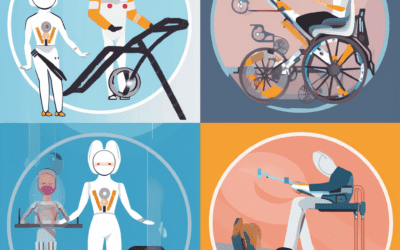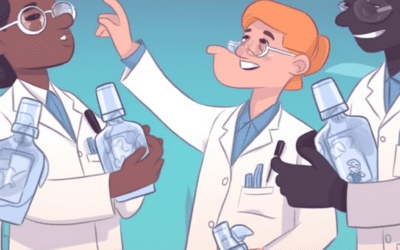Learning Program: Wound Care in the Care for the Elderly
Introduction
Can you build me a learning program about wound care in the care for the elderly? Absolutely! In this program, we will explore the essential aspects of wound care for older adults in a simple and relatable way. Let’s dive in!
Understanding Wounds and the Aging Process
As we age, our skin becomes more fragile and prone to injuries. Wounds, such as cuts, burns, or pressure ulcers, require special attention to ensure proper healing.
Here are some key points to keep in mind:
- Wounds can occur for various reasons, like accidents, surgeries, or chronic conditions.
- The aging process affects the body’s ability to heal, making wound care more critical for the elderly.
- Preventing wounds is crucial. Regular check-ups, maintaining good hygiene, and creating a safe environment can help reduce the risk.
First Aid for Wounds
Knowing how to provide immediate care is essential when dealing with wounds. Here are some steps for first aid:
- Stop the bleeding: Apply gentle pressure with a clean cloth or bandage to stop the bleeding.
- Wash your hands: Before moving forward, remember to wash your hands thoroughly to prevent infection.
- Clean the wound: Gently clean the wound with mild soap and water, removing dirt and debris.
- Apply an antibiotic ointment: Using a clean cotton swab, apply a thin layer of antibiotic ointment to prevent infection.
- Cover the wound: Use a sterile bandage or dressing to protect the wound and promote healing.
- Seek medical attention: If the wound is deep, large, or shows signs of infection, it’s important to consult a healthcare professional.
Managing Chronic Wounds
Some wounds may take longer to heal or require ongoing care. These chronic wounds often result from conditions like diabetes or limited mobility. Here’s what you need to know:
- Diabetic foot ulcers: People with diabetes are prone to foot ulcers. Regularly inspecting the feet, moisturizing dry skin, and wearing proper footwear are crucial.
- Pressure ulcers: These sores develop due to prolonged pressure on the skin. Regularly shifting positions, using special cushions, and keeping the skin clean and dry are essential.
- Surgical wounds: If you or a loved one undergoes surgery, carefully follow the doctor’s instructions regarding wound care, medications, and dressing changes.
Recognizing Signs of Infection
Being able to identify signs of infection in wounds is crucial for timely treatment. Here are some common signs to watch out for:
- Increased pain: If the wound becomes more painful instead of gradually improving, it may be a sign of infection.
- Swelling and redness: Infections can cause the wound area to become swollen, warm to the touch, and red.
- Discharge or pus: If you notice any discolored or foul-smelling discharge from the wound, it could be a sign of infection.
- Fever: A fever often indicates an infection. Keep an eye on any abnormal rise in body temperature.
- Delayed healing: If the wound doesn’t show signs of improvement or starts to worsen, it’s important to seek medical advice.
The Importance of Wound Care in the Elderly
Proper wound care in the elderly is essential for overall well-being. Neglecting wound care can lead to severe complications such as infection, gangrene, or even amputation. By following these practices, you can ensure optimal care:
- Keep the wound clean: Regularly clean the wound with mild soap and water as prescribed by a healthcare professional.
- Change dressings as directed: Be diligent in changing dressings according to the recommended schedule to prevent infection and aid the healing process.
- Follow medication guidelines: If antibiotics or other medications are prescribed, it is important to take them as directed.
- Monitor for changes: Keep a close eye on the wound’s progress and be vigilant about any signs of infection or complications.
- Reach out to healthcare professionals: If you have any concerns or questions about wound care, don’t hesitate to consult healthcare professionals. They are there to help!
Conclusion
Building a learning program about wound care in the care for the elderly is crucial to ensure the well-being and proper healing of older adults. By understanding the importance of wound care, recognizing signs of infection, and providing appropriate first aid, we can make a positive impact on the lives of our elderly loved ones. Together, we can promote healthy aging and ensure a comfortable and happy life.
Crossword Puzzle












